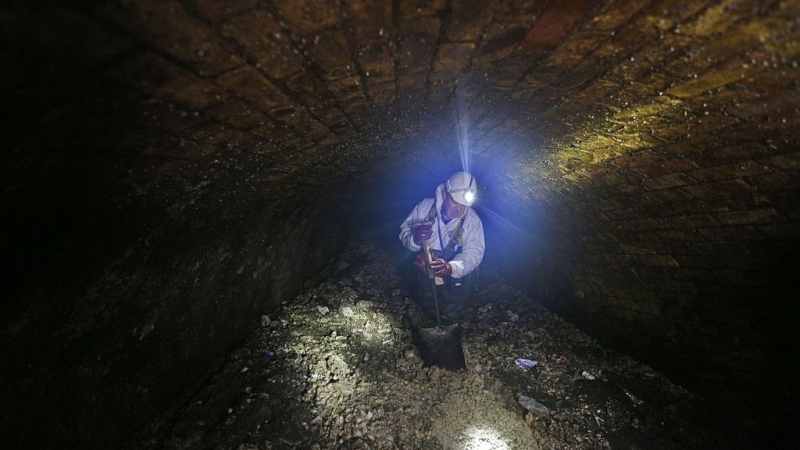Bryan Adams concert in Australia is canceled after a ‘fatberg’ causes sewage overflow
Residents of Perth, Australia, have an unusual culprit to blame for their Sunday evening plans getting canceled: a dreaded “fatberg” causing wastewater to overflow.
Three things to know:
- Fatbergs are massive globs of congealed cooking fat, grease and other waste often held together by wet wipes and rags that create huge water blockages in sewer systems and can be tedious and expensive to remove.
- The blockage was detected near a Perth arena mere hours before Canadian musician Bryan Adams’ sold-out show was set to take place.
- Workers were called to help clear up the fatberg, but were unable to resolve it before the start of the show. Water authorities warned of wastewater flowing into the venue, forcing organizers to cancel the show and upsetting the many fans who had received no communication and had been waiting for entry.
Listen to NPR’s Short Wave podcast for more discoveries, everyday mysteries and the science behind the headlines.
Why do fatbergs happen?
Waste management workers have been dealing with people using their toilets like trashcans for decades. But the booming wipes industry has posed a new challenge in keeping pipes and waterways clean.
And it can cost taxpayers. NPR reporting from 2017 found that fatbergs were costing London’s water provider more than $1.3 million a month to remove.
Sewer managers say it’s best to throw wet wipes in the garbage. And Australia’s Water Corporation says cooking oils and fats can harden in pipes — instead of pouring down the drain, put it in a container and freeze it until trash day.
Dive deeper with NPR on waste and health
- Read on for more on the stinky, precarious song of the fatberg.
- From A to Zika, get the latest global health and development news, sent weekly to your inbox, with the Goats and Soda newsletter.
Taiwan’s president pledges to defend island’s sovereignty after Chinese military drills
Taiwanese President Lai Ching-te vowed to defend the self-ruled island's sovereignty in the face of what he termed China's "expansionist ambitions," days after Beijing wrapped up live-fire military drills near its shores.
Deaths reported during widening protests in Iran sparked by ailing economy
The protests began due to economic pressures, with Iran's currency rapidly depreciating. Demonstrators have also chanted against the country's theocracy.
Congress failed to extend Obamacare subsidies. This Democrat says Trump can save them
Sen. Peter Welch, D-Vt., says he thinks the Senate can pass a "retroactive" Affordable Care Act subsidy extension, but "we need President Trump."
Rideshare union rights, social media limits and other state laws taking effect Jan. 1
Every new year, public media reporters across the country bring us some of the new state laws taking effect where they are. Here are six in 2026.
Guides to help you tackle your New Year’s resolutions
From building your strength to tackling credit card debt, NPR's Life Kit has a newsletter journey to help you tackle your New Year's resolution.
Guides to help you tackle your New Year’s resolutions
From building your strength to tackling credit card debt, NPR's Life Kit has a newsletter journey to help you tackle your New Year's resolution.






